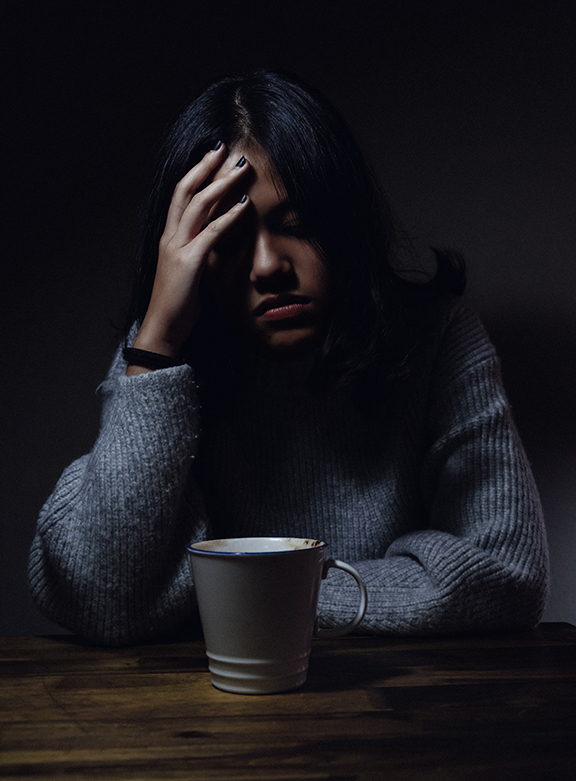Withdrawal Symptoms: What To Expect With Absence of Your Substance

One of the biggest reasons why addicts will continue their addiction is the fear of withdrawals. They can be very uncomfortable and even unbearable to face. Depending on your substance, the duration of how long you have taken it or the dosage, and history of abuse, can all affect how severe your withdrawal symptoms will be.
When a person is in withdrawals it can be either they can not find their substance, or it can be because they are choosing to quit their addiction. Either way it is a scary experience for the user and they need lots of support. As long as a person is a user they will have consistent withdrawal symptoms until they completely come off the substance.
Heroin and Opiate withdrawals
The withdrawal symptoms of heroin or other opiates (oxycodone, percocet, suboxone,)
The symptoms will vary between person to person, it depends on how you were using the drug, the duration you were using, the amount taken, and other environmental and genetic factors.
The reason why opiate withdrawal symptoms are so miserable for the user is because the brain has opiate receptors and when they do not have the drug your brain is firing because of the lack of opiates. You brain has changed chemistry to depend on the drug, and it is very difficult to come off without many symptoms. Although it is not dangerous to withdrawal from opiates it can be very scary, and the real danger is the overdose after trying to come off.
heroin withdrawal symptoms
- muscle pain
- agitation
- insomnia
- runny nose
- sweats/fever
- diarrhea/vomiting
- high blood pressure
- heart racing
While these symptoms are very uncomfortable for the user, they an be managed during the duration of the detox. When you detox with a program, they will taper your dosage so that when you do come off the withdrawal symptoms will not be as severe and more manageable. There are also ways of helping treat some of the symptoms with a doctor prescribed medicine or at home remedies that are able to help you manage your detox. Typically the withdrawals will be around 3-10 days depending on the way your body eliminates the toxins. The emotional symptoms, and cravings will last much longer and could last up to three months. After your brain chemistry changes and your brain heals, you can manage your treatment with therapy, exercise and good nutrition, support groups, and doing service to other addicts or service groups.
Alcohol withdrawals
Alcohol withdrawals are one of the most dangerous, and should be monitored by a professional.
If you want to learn more about the dangers of at home detox click HERE.
Alcohol has a depressive effect on the brain and slows down the responses with your nerves. It not only impairs your judgement it is also very dangerous for your liver.
When you use alcohol regularly your central nervous system will be dependent on it and your brain works extra hard. The withdrawals happen when you brain is trying to do the overworking.
alcohol withdrawal symptoms
- headache
- nausea-vomiting
- anxiety
- sweating
- shaky hands
- confusion
- nightmares
- insomnia
- irritability
If you experience any of these symptoms they are considered a medical emergency
- seizures
- extreme confusion
- hallucinations (visual, audial, tactile)
- fever
- extreme agitation or violence
Benzodiazepines withdrawals
Benzodiazepines are commonly prescribed for anxiety, sleep disorders, and muscle spasms. There is a debate about if physical dependency and addiction are the same. But either way the withdrawal symptoms are the same and need to be monitored carefully by a professional. Like alcohol, these drugs work with your central nervous system and can cause deadly seizures so should to taken seriously when wanting to taper off these drugs.
benzo withdrawal symptoms
- anxiety
- hallucinations
- headaches
- insomnia
- seizures
- depression/suicidal thoughts
The “rebound” affect is when these drugs that are prescribed for anxiety and sleep, when stop taking the drug your body will have an increased effect of anxiety, and restlessness.
Meth withdrawals
Meth is not as dangerous to detox but can still be uncomfortable for the user. During the first week it will be mostly sleep disorder and depression while your body is detoxing the drug. Then after about a week they can experience hallucinations, insomnia, paranoia, and extreme anxiety. The depression and cravings can stay for a long period of time but will start to feel better after around 31 days. All of these substances even though they can be common are a extremely hard thing for addicts to face. This is the hardest part of addiction and where they need the most help. As family members we don’t want to see them suffer so we try to help in ways that we know how. Sometimes it can be enabling and will not be making them better. The best option for an addict is to get the right treatment for their circumstances and to have continuous meetings with support groups and therapy. For more information about helping your addict with Pomarri visit the website www.pomarri.com You can call or email and schedule a consultation.

